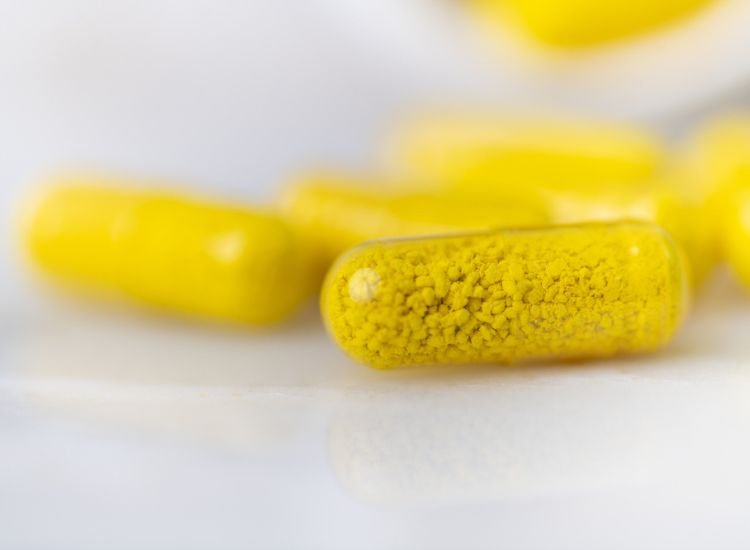Berberine is a bioactive compound found in a variety of plants. It is best known for its potential health benefits, which include improving digestive health and managing diabetes.
However, with its widespread use, a question that frequently arises among users is: “Does berberine change stool color?” This concern is important for understanding how berberine affects our digestion and overall health.
In this article, we talk about the uses and side effects of Berberine and their connection with stool. We will also explore factors that cause the change in stool color, and give some warnings for those using Berberine. So let’s dive in!
What is Berberine?
Berberine is a compound extracted from some plants like goldthread, European barberry, phellodendron, and Oregon grape. It has been widely used for centuries in traditional medicine systems like Ayurveda and Chinese medicine.
Berberine is a bitter and yellow chemical compound. It’s regular consumption helps maintain your blood sugar levels and strengthen the heartbeat, which helps people with certain heart problems.
It’s known best for its potent anti-inflammatory properties, which help you to reduce swelling.
A study suggests that berberine is an effective drug in lowering cholesterol levels and reducing the severity of heart disease. Despite its bitter taste, this yellow compound proves to be a powerful ally in supporting overall health and well-being.
Berberine Uses and Side Effects

Uses of Berberine
Berberine has many potential applications in health care due to its bioactive properties. Here are its uses that are possibly effective:
- Canker sores. Berberine has been found to reduce pain and inflammation associated with canker sores. Apply the berberine-containing gel on the area can reduce the pain, redness, swelling, and size of the canker sores.
- Diabetes. Berberine shows beneficial effects on glycemic control, blood lipid regulation, and insulin resistance. It also decreases the body’s glucose production in the liver.
- High cholesterol. Berberine may reduce total cholesterol, LDL (bad) cholesterol, and triglycerides levels.
- Heart failure. A study concluded that berberine could improve heart function in people dealing with congestive heart failure.
- High blood pressure. taking 0.9 grams of berberine daily along with amlodipine a (blood pressure-lowering drug) can help reduce blood pressure even more than just taking amlodipine alone.
Also Read: Can I Take Berberine and L-Carnitine Together?
Side Effects of Berberine
Berberine is considered safe for most adults. But some people might experience these side effects:
- Digestive Issues: Consumption of berberine may cause digestive disturbances such as constipation, diarrhea, or stomach cramps.
- Lowered Blood Pressure: It may lower blood pressure, which could be an issue for those already on medication for hypertension.
- Pregnancy and Lactation: Berberine is considered possibly unsafe for pregnant and breastfeeding women. It might cross the placenta and might cause harm to the fetus.
Connection between Berberine and stool Color
Berberine’s impact on stool color is indirectly related to its effect on your digestive system. It has strong antimicrobial and anti-inflammatory properties, which can influence the gut microbiota.
This change in the bacterial composition of the gut can sometimes result in a change in stool color. However, it’s important to understand that stool color is also influenced by diet, hydration, and other medications.
Any significant or continuous change in stool color should be discussed with a doctor, as it may indicate underlying health issues that require medical attention.
Related: What Does Diabetic Poop Smell Like? A Complete Guide
Does Berberine Change Stool Color?

No, berberine does not change your stool color. However, some people may notice a slight change in stool color due to alterations in gut bacteria, particularly if taking a high dosage.
Don’t worry if it’s just temporary and not accompanied by other symptoms. However, if a change in stool color persists, or if there are additional signs like abdominal pain or changes in bowel movements, it would be advisable to talk to your doctor.
Always remember, while berberine has many health benefits, but it’s not a substitute for a balanced diet, a healthy lifestyle, and regular medical check-ups.
Must Read: Can Berberine Really Damage the Liver?
Does berberine make your poop yellow?
No, there is no scientific evidence to suggest that berberine turns your poop yellow. As previously mentioned, changes in stool color could be attributed to variations in gut bacteria, especially when consuming high doses of berberine.
Note that yellow poop can be a normal color for stool, but if you notice a persistent change to yellow, it may indicate a health issue like a gallbladder problem or a giardia infection.
Also, if you see other changes like loose stools, foul-smelling stools, or the presence of grease or fat in the stool, these could be signs of malabsorption issues, which require medical attention.
Related: Can You Take Berberine And Magnesium Together?
What causes the change in stool color?
Here are a few reasons why your poop might change color if you’re using berberine:
- Alteration in Gut Flora: Berberine has antimicrobial properties that can influence the gut microbiota. These alterations can sometimes result in a change in stool color.
- Dosage of Berberine: A higher dosage of berberine may produce a noticeable change in stool color due to its effect on gut bacteria.
- Reaction with Other Medications: The interaction of berberine with other medications you might be taking can influence the color of your stool.
- Individual Body Response: Every person’s body responds differently to supplements, including berberine. This means changes in stool color can vary from person to person.
- Diet Changes: If you’ve made changes to your diet while taking berberine, this may be the cause of a color change in your stool.
Warning for Berberine users
Despite its numerous health benefits, berberine users should bear in mind the following:
- If you notice a significant or persistent change in stool color when using berberine, consult with a doctor.
- Before starting berberine, make sure you are not allergic to it. If any allergic reactions occur such as rash, itching, or swelling, seek medical attention immediately.
- Women who are pregnant or breastfeeding should avoid using berberine without medical consultation.
- Overdosing on berberine may lead to symptoms like lethargy, difficulty breathing, skin flushing, seizures, or loss of coordination.
- Berberine can lower your blood pressure, those on medication for hypertension should check their blood pressure regularly.
When To Seeking A Doctor
A change in stool color is usually not a serious condition and tends to go away on its own. But there are instances where it may indicate an underlying health issue.
If you experience persistent changes in stool color accompanied by other worrisome symptoms like unexplained weight loss, fatigue, or blood in your stool, it’s important to consult with a doctor so they can evaluate the underlying condition properly.
Conclusion
Berberine is a compound that is extracted from various plants. It has been widely used in the medical industry for centuries to treat many health problems.
When it comes to changes in stool color, Berberine does not directly change your stool color. This happens due to the compound’s influence on bile production and processing by the liver.
Some people might notice a change in stool color, but don’t worry, it’s usually harmless and temporary. Just stay aware and if you have severe or persistent symptoms, it’s always a good idea to seek medical advice. As always, consult with your doctor before starting any new drug regimen.
FAQ
When is the best time to take Berberine?
The recommended berberine dose is 500 mg, three times a day. Take it about 30 minutes before meals. It’s generally recommended to take berberine with meals to enhance absorption and minimize digestive side effects. It does not have any serious side effects so feel free to take it even on an empty stomach.
What are the benefits of taking Berberine?
Berberine has many benefits like managing blood sugar levels, supporting cardiovascular health by helping lower cholesterol levels, aiding weight loss efforts by promoting healthy metabolism, and possessing antimicrobial properties.
What is berberine for weight loss?
Berberine has gained popularity as a potential weight loss aid. It may help regulate metabolism, improve insulin sensitivity, and reduce appetite, leading to better weight management.
Can berberine damage the liver?
While berberine is generally safe for most people. When you take high doses, there have been a few reports of liver injury, but if you stick to the recommended doses, you should be fine. If you have an existing liver condition or are taking medications that affect liver function, it’s good to talk to your doctor before starting berberine.
How long does Berberine take to work?
The time it takes for berberine to produce noticeable effects can vary from person to person. Some people may start seeing benefits in a few weeks, while others might notice results in two to three months. It’s important to be patient and consistent with your berberine regimen while monitoring its effects on your health.
Resources of the Article
- https://www.ncbi.nlm.nih.gov/pmc/articles/PMC4901288/
- https://www.webmd.com/vitamins/ai/ingredientmono-1126/berberine

Dr. Usman is a medical content reviewer with 12+ years of experience in healthcare research and patient education. He specializes in evidence-based health information, medications, and chronic health topics. His work is based on trusted medical sources and current clinical guidelines to ensure accuracy, transparency, and reliability. Content reviewed by Dr. Usman is for educational purposes and does not replace professional medical advice.

1 thought on “Does Berberine Change Your Stool Color?”